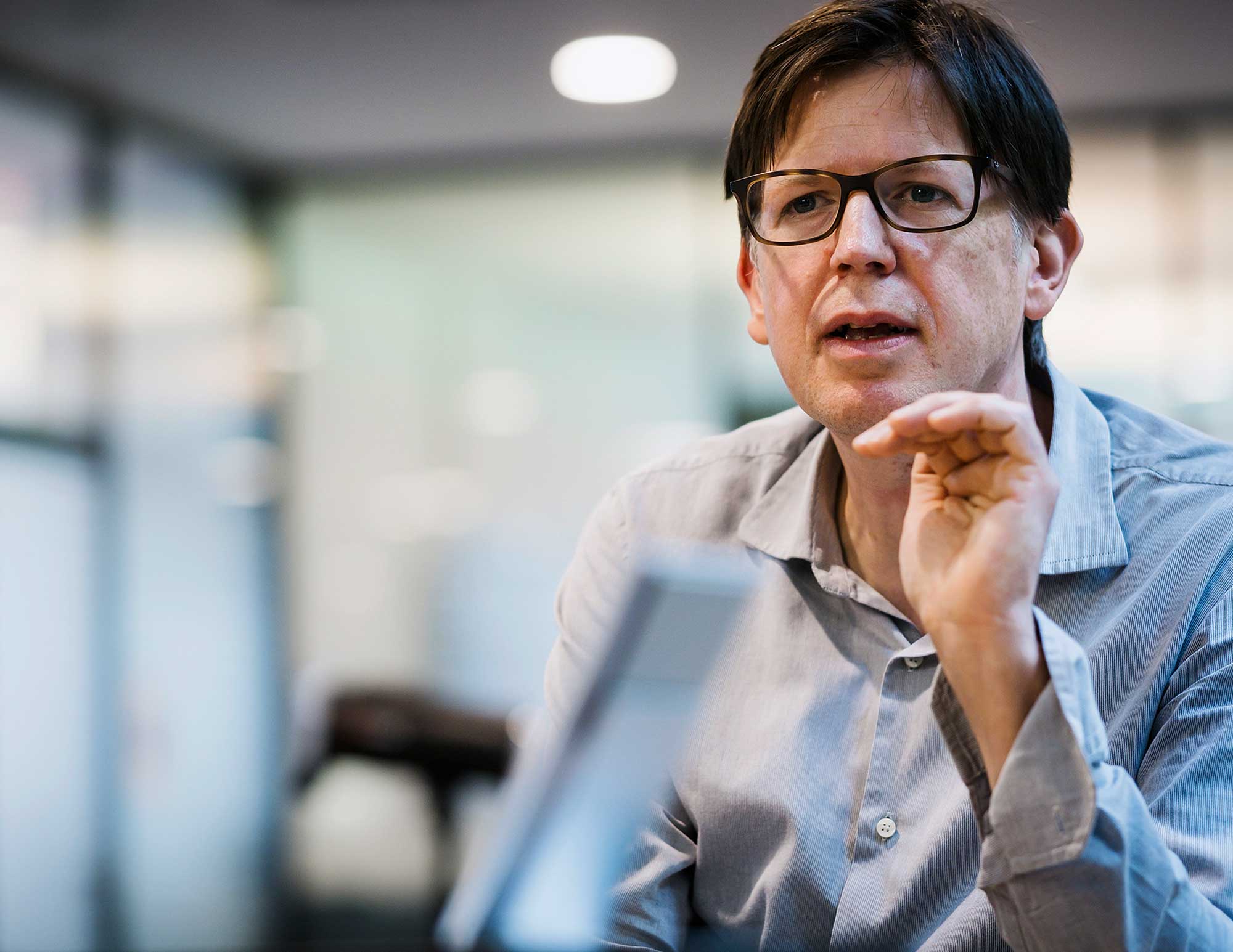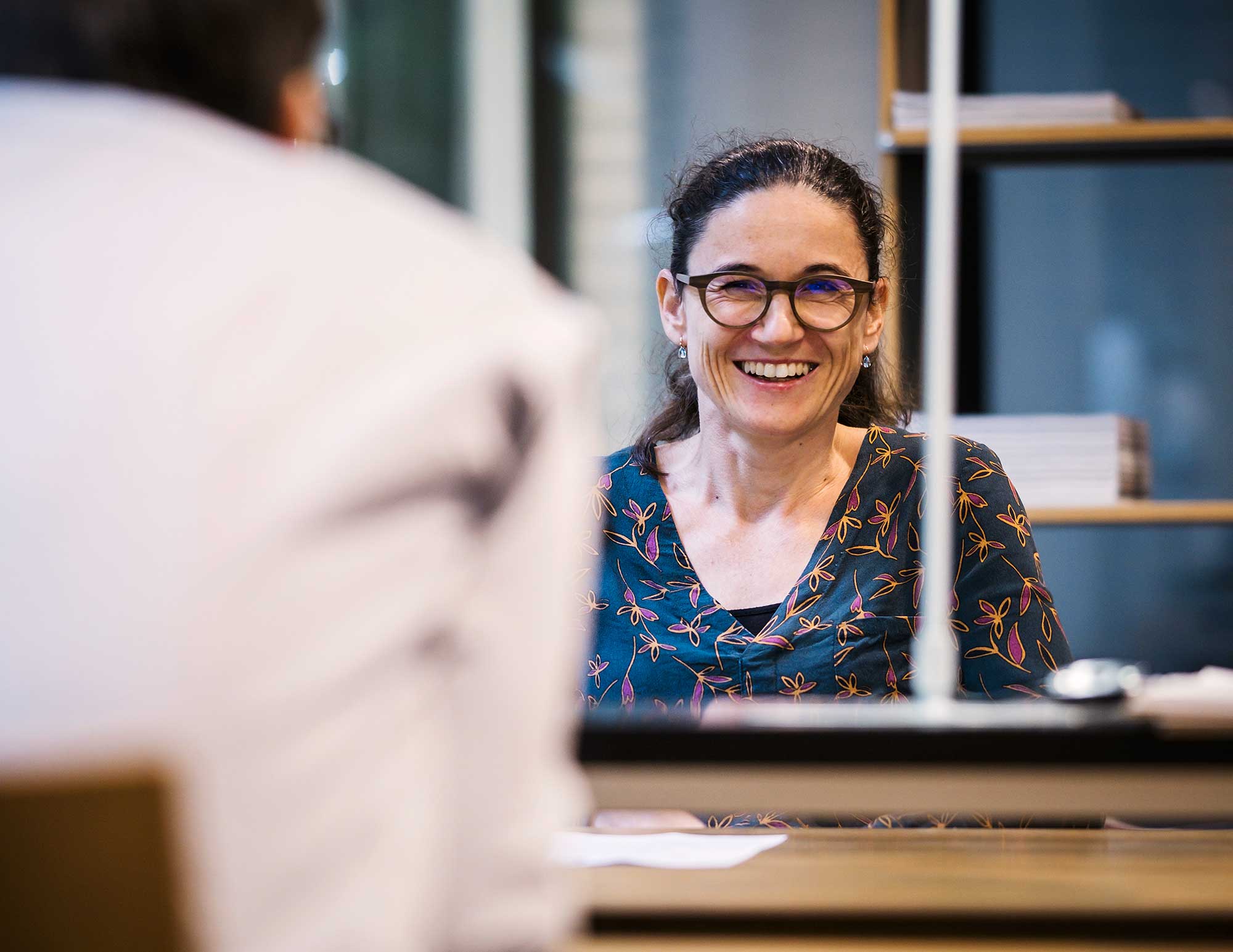Beat: “It’s really varied. I digitalise incoming post and send it to the respective departments. I’m also constantly on the go between the different Swissmedic sites and our big archive in Zollikofen. A lot of documents are still being used in paper form. So I travel around a lot and am present at all the sites, although mainly at head office in Hallerstrasse.”
Beat: “Cornelia, you’re a case manager. What does that mean exactly?”Cornelia: “On the one hand project management, because we coordinate the authorisation and variation applications. We involve expert reviewers in some transactions. These might be specialists who can assess the manufacturing quality of a medicinal product, for example, or the schedule of a clinical trial. We process incoming applications, assign them to reviewers and need to ensure that the deadlines are met. Case managers are also the people that companies contact. In addition, we assess the regulatory parts of the documentation in accordance with the current legal requirements. We produce a Regulatory Evaluation Report for larger applications, and this provides the expert reviewers with an overview. I am responsible for some of the cancer therapies; I check that the procedure is operating correctly and review the information for patients and the packaging elements.”
Cornelia: “You weren’t able to work from home during the lockdown – didn’t you sometimes wish you could have done that?”“I appreciate the freedom I have and the fact that I can more or less arrange my own working hours.”
Beat: “At the moment I could be recording applications from home several days a week again. But I don’t mind coming to the office – on the contrary. I’m happy to get out of the house in the morning, it gives me a certain degree of freedom.”
Beat: “What does it feel like, spending most of your time working at home – what do you miss?”
Cornelia: “It’s all OK really. I was already well-equipped because I was working from home one and a half days per week even before the coronavirus. Everything works absolutely fine, but of course I miss the contact with other people sometimes.
I spend a lot of time on the phone, particularly with the other case managers and assistants that I work with directly. The type of work we do means that we need to interact closely with each other. We exchange ideas, discuss applications, share our concerns ...”
Beat: “Not really. During the lockdown, in particular, I just had to get used to the fact that there was practically noone there. And luckily one of my bosses is nearly always there.”
Beat: “How did you cope with the technical aspects?”Cornelia: “I’m amazed that everything works so smoothly. The system works, the service is great and I get all the documents delivered electronically. I’m now working completely without paper.”
Cornelia: “What do you like most at Swissmedic?”«Everything works absolutely fine, but of course I miss the contact with other people sometimes.»
Beat: “I love the variety in my job. I wouldn’t enjoy it if I had to do the same thing all day.” I also appreciate the freedom I have and the fact that I can more or less arrange my own working hours. And last but not least, I really appreciate our team and how well it functions!”
Beat: “What are the biggest challenges in your job?”Cornelia: “It often happens that lots of things have to be done at the same time. A lot of applications that have to be handled immediately, companies with questions – I need to be able to set priorities here. There’s a lot of variation in the workload. Sometimes we’re working to three deadlines at once. That’s when I have to pull myself together and do one thing at a time until it’s all finished.”

